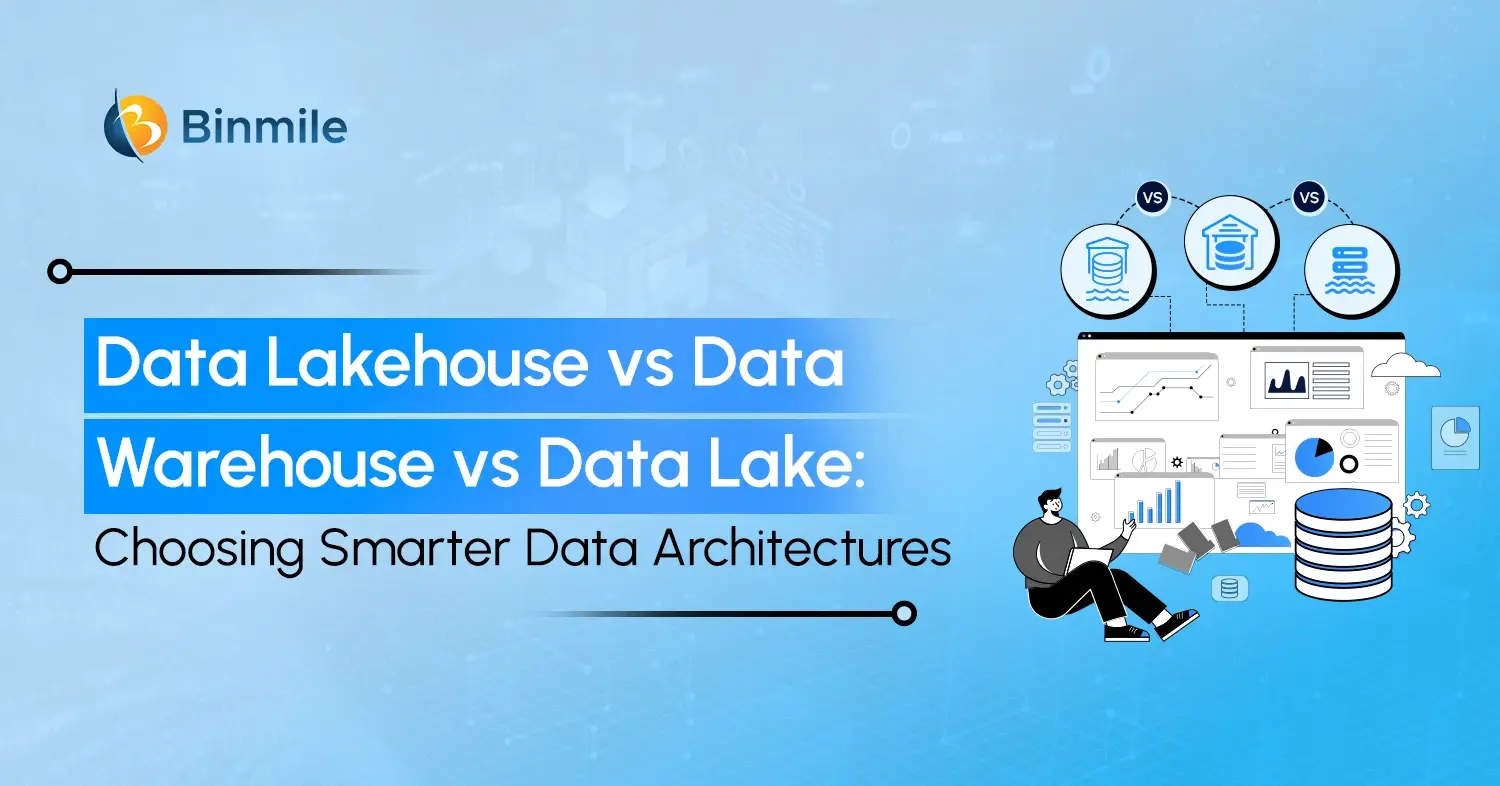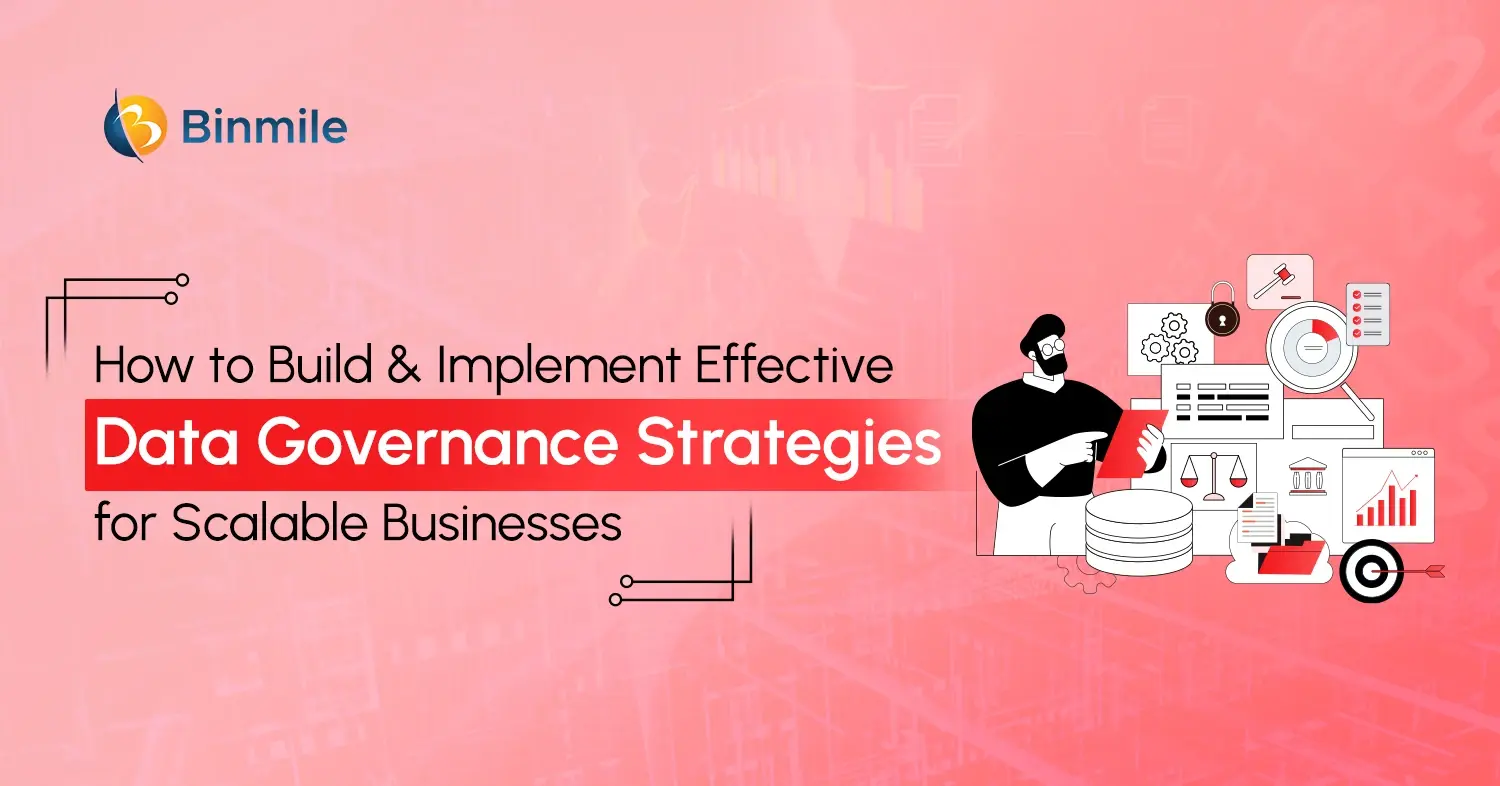From customer insights to operational efficiency, data has been a driving force behind modern businesses. Whether created by an organization, its customers, or a third party, data can only bring meaningful insights when leveraged correctly. This is why organizations utilize data and governance, as well as data management. Data governance establishes policies and procedures around data, while data management implements those policies and procedures. Together, they ensure data is handled securely, compliantly, and efficiently throughout its lifecycle. However, as organizations strive to become data-driven, many overlook a critical nuance: what is the difference between data management vs. data governance?
It’s essential to establish the distinction as it can lead to compliance risks, fragmented systems, and missed opportunities. In this blog, we will discuss what is data management, its benefits, and explore the definition of data governance, well its benefits. Additionally, we will understand the key differences between these two to make more informed decisions to build a resilient, intelligent data ecosystem.
What is Data Management?

It is the systems of architecture, policies, and procedures that cater to meet the full data lifecycle management needs of an organization. Data management also enables businesses to collect, process, and utilize data effectively, leading to improved business outcomes.
The objective of data management is to help organizations optimize the use of data while adhering to policy and regulation, enabling them to make informed decisions and maximize the benefits to the organization.
Key Benefits of Data Management
- Enables confident decision-making by providing accurate, consistent, and timely data across the organization.
- Improves operational agility through streamlined data workflows and reduced duplication.
- Strengthens compliance posture by ensuring data practices align with regulatory standards.
- Elevates data quality in AI systems through rigorous validation, intelligent cleansing, and standardized governance frameworks.
- Supports scalable growth by creating a structured foundation for analytics, automation, and innovation.
Definition of Data Governance & Its Benefits

As a process, data governance establishes internal standards and policies, ensuring that enterprise data is available, usable, and secure. This helps businesses that rely heavily on data analytics services to optimize operations and inform business decision-making.
With emerging trends such as innovations in AI, IoT, and generative AI, the volume of data will increase, and so will the security threats. Organizations strive to maintain safe, high-quality data and make it accessible for all their BI projects.
Advantages of Data Governance
- Effective data governance ensures that the data you leverage is consistent, reliable, and not misused.
- Establishes accountability by defining clear ownership and stewardship roles across the data lifecycle.
- Improves data trustworthiness through standardized policies that ensure consistency, accuracy, and integrity.
- Reduces compliance risk by aligning data practices with regulatory and ethical standards.
- Enables better decision-making by making high-quality, well-governed data accessible to stakeholders.
- Drives strategic alignment by ensuring data initiatives support broader business goals and priorities.
Data Management vs Data Governance: A Detailed Comparison
| Factors | Data Management | Data Governance |
|---|---|---|
| Definition & Purpose | Executes how data is handled and delivered | Defines policies, rules, and oversight |
| Scope | Day-to-day operations and technical processes | Standards, ownership, and compliance controls |
| Focus | Execution and infrastructure | Strategy, policy, and accountability |
| Ownership | IT, data engineers, and DB admins | CDOs, stewards, and business stakeholders |
| Tools | ETL tools, MDM, data catalogs | Governance platforms, access control, and lineage |
| Compliance Role | Applies compliance mechanisms | Establishes what must be compliant |
| Orientation | Tactical and operational | Strategic and policy-driven |
Two crucial yet often-confused concepts in this space are data management and data governance. While both are essential to a robust data strategy, they serve different purposes and involve different processes. Let’s explore key differences between data management and data governance to help clarify their unique roles in modern enterprises.
1. Definition and Purpose
- Data Management refers to the overall set of practices, tools, and processes involved in collecting, storing, organizing, and delivering data efficiently. It focuses on ensuring that data is accurate, available, and accessible for both analytical purposes and operational processes, such as supply chain management.
- In contrast, Data Governance is the overarching framework that sets the rules, responsibilities, and standards for managing data. It defines how data should be handled, who is accountable, and how compliance with internal and external regulations is ensured.
2. Scope of Activities
- Data management involves the operational handling of data throughout its lifecycle. This includes everything from data acquisition and storage to integration, quality control, and delivery. It is concerned with ensuring that data systems function efficiently on a technical level.
- Data governance, by contrast, is concerned with setting the standards, policies, and decision rights that govern how data should be managed. It establishes the formal structures needed to ensure data integrity, trustworthiness, and compliance throughout the organization.
3. Focus Area
- Data Management is primarily execution-oriented. It is focused on the technical processes and infrastructure that enable the handling and movement of data across platforms and systems.
- Data Governance, however, is policy-oriented. It emphasizes strategic control, ensuring that the rules for data use and protection are well-defined and followed. The focus is on accountability, compliance, and the ethical use of data.
4. Responsibility and Ownership
- The responsibility for data management typically lies with IT professionals, data engineers, and technical teams who are charged with implementing and maintaining data systems. Their role is to ensure that data is accurate, timely, and efficiently processed.
- On the other hand, data governance involves a broader range of stakeholders across the organization. Chief Data Officers, business leaders, compliance officers, and data stewards are all involved in establishing governance policies and ensuring that data is treated as a strategic business asset. Their responsibility is more about oversight and accountability than day-to-day operations.
5. Tools and Technologies
- Data management tools are supported by technologies that facilitate the storage, processing, and transformation of data. This includes data warehousing solutions, data integration tools, and platforms for data quality and master data management.
- In contrast, data governance tools are designed to provide oversight and control. These platforms enable organizations to define policies, manage data access, track lineage, and ensure regulatory compliance.
6. Compliance and Risk Management
- Data governance plays a central role in ensuring that organizational data practices align with regulatory requirements and internal policies. It establishes the framework necessary for managing risk, promoting accountability, and protecting sensitive data.
- While data management ensures that the technical execution complies with these policies, which define what needs to be done to mitigate risks, GDPR FinTech compliance standards apply if you’re in industries that deal with sensitive information.
7. Strategic vs. Tactical Orientation
- Data Governance is strategic in nature. It defines the long-term vision and policies that shape how data should be treated within the organization. It aligns data practices with business objectives and regulatory requirements.
- Data Management, by contrast, is tactical. It translates governance policies into action by executing daily data operations, implementing systems, and resolving technical challenges.
Also Read: Structured vs. Unstructured Data
5 Reasons Understanding Data Governance vs. Data Management Should Matter to Your Organization
The importance of understanding the difference between data governance and data management is not just about knowing the terminologies for a better data strategy, but to avoid inefficiencies, compliance failures, and unclear ownership. There are additional reasons why understanding the difference between data governance and data management is crucial to your organization’s success.

1: Enhances Data Accountability
Clear differentiation ensures that roles and responsibilities are allocated accordingly. Governance establishes who owns the data and who is responsible, whereas data management trends control its applicability, reducing confusion and unnecessary duplication in efforts.
2: Improves Regulatory Compliance
Policies necessary for compliance are created by data governance and implemented through data management. This distinction will ensure the safe, legal, and ethical handling and processing of sensitive data, thereby avoiding legal consequences and reputational damage.
3: Optimizes Resource Allocation
The differentiation of organizations between governance and management enables them to allocate their technical, strategic, and human resources more efficiently. This eliminates duplication, enhances collaboration, and makes data initiatives business-focused.
4: Supports Strategic Decision-Making
Understanding the difference between governance, which ensures data trust and integrity, and management, which ensures availability, helps organizations align their data policy with execution. This clarity enables leaders to make timely, strategic decisions based on reliable, consistent, and compliant data.
5: Strengthens Data Culture
The clarity between the roles governance and management perform helps establish a mature data culture. After all, when employees are aware of both the policy and practice data management frameworks, they adhere to data standards, embrace data privacy, and promote data integrity.
Closing Thoughts on Data Management vs Data Governance
To ensure a truly data-driven organization, both data governance and data management play crucial roles in achieving this goal. So what’s the difference between data management vs data governance? It’s simple: data governance serves as a roadmap to define who owns the data, how it should be used, and why it matters. Data management, in turn, is the driving force behind making sure data is available, accurate, and actionable across the board. Thus, by embracing both governance and management, you not only safeguard your data assets and meet compliance requirements, but you fully realize the value of your data.
If you’re looking to build a trusted, agile, and scalable data ecosystem, our data engineering services can help you get there more efficiently and effectively. So, don’t just manage data, govern it with purpose. Our data analysts can help you transform raw data into reliable insights, empowering your organization to make informed decisions and stay future-ready.
Your data transformation starts with the right partner. Reach out to us today and take the next step in building a smarter, more data-driven future!









